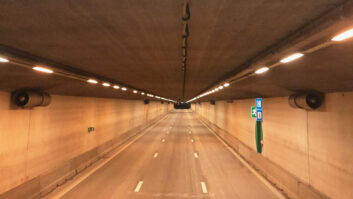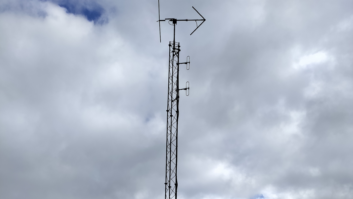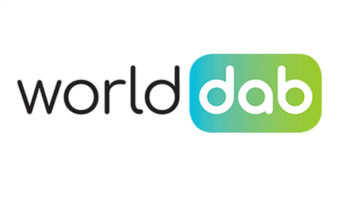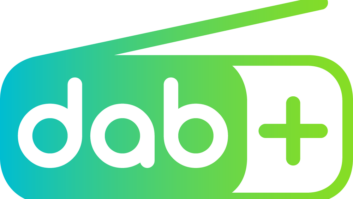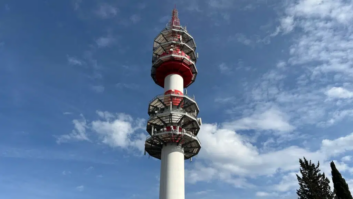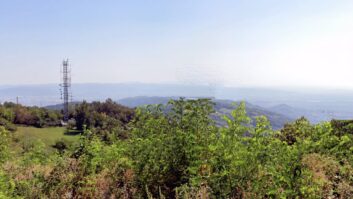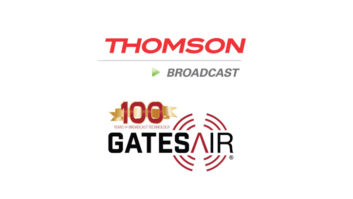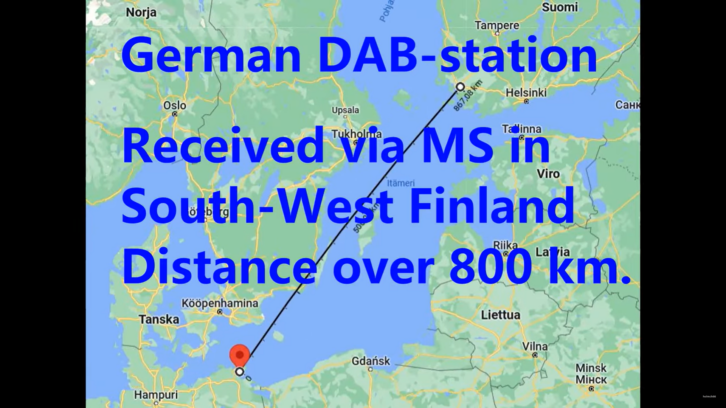
Koe Kone, a DX hobbyist based in Turku, Finland, enjoys trying to track down distant broadcast signals and his YouTube channel is full of recordings of catches from around the Baltic Sea and beyond. But in the early hours of Aug. 12, 2023, during the height of the Perseids, he captured the first documented instance of VHF band III DAB signals being affected by meteors.
That activity in the upper atmosphere and even outer space can affect radio broadcasting is nothing new. Differences in the ionosphere between day and night affect how far AM signals travel, and temperature inversions in the troposphere can cause FM signals to “skip” to distant markets.
As early as the 1930s, it was known that meteor showers had an impact on radio signal propagation, and amateur radio and FM receivers can even be used to listen to meteor showers.
Using an Airspy Mini scanner and QIRX SDR software for the reception paired with a 13-element VHF band III yagi antenna at 48 meters above sea level, Kone successfully received and decoded a signal from a German multiplex operating in block 5C. Based upon the stations decoded, he identified five possible DR Deutcschland multiplex sites as the transmission source: Casekow, Pritzwalk, or Templin in Brandeburg; Röbel, Rostock, or Züssow in Mecklenburg–Vorpommern; or Garz on the island of Rügen, also in Mecklenburg–Vorpommern. The closest of the sites is about 800 kilometers (nearly 500 miles) from his reception site in southwestern Finland.
At the height of his listening on Aug. 12, Kone saw three adjacent DAB multiplexes on blocks 5B, 5C, and 5D in the receiver’s waterfall display. Although he hadn’t been able to decode the signals, he did catch short bursts from blocks 5C and 5D early in the morning on Aug. 11.
In a post to the “DAB/DAB+ Digital & Online Radio” Facebook group, Kone stated he has been able to catch Swedish DAB stations in the past, but the meteor shower recording was a first. “Swedish DAB from Stockholm, Gävle, and Uppsala are quite common and easy to listen here in South-West Finland during even mild tropo conditions. This in the video was quite different being a meteor scatter and lasted only a few seconds.”





